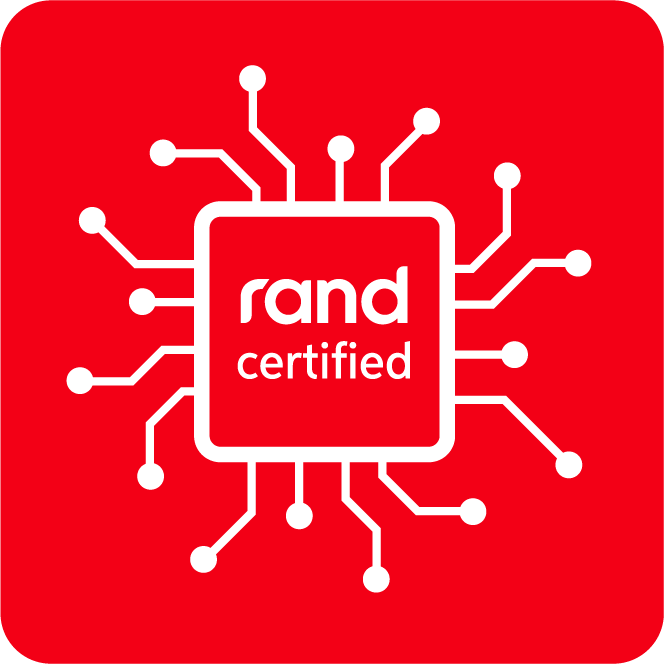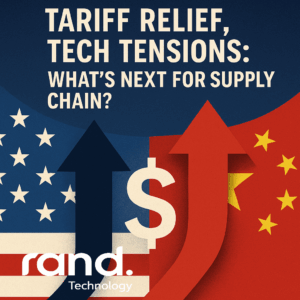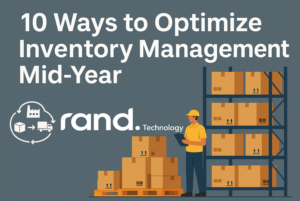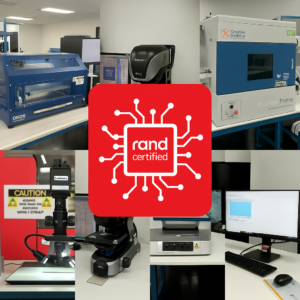In an increasingly interconnected global market, supply chains are no longer mere conduits for moving products from point A to point B. They are the lifelines of industries, sustaining businesses and economies alike. However, the traditional, transaction-based approach to supply chain management often leaves untapped opportunities for collaboration and innovation. To truly thrive, supply chain partnerships must evolve from focusing on transactions to fostering long-term relationships built on trust, shared values, and mutual success.
Andrea Klein, CEO and founder of Rand Technology, puts it succinctly: “Supply chains are not just about logistics; they’re about relationships. At Rand, we believe our greatest strength lies in our ability to forge meaningful partnerships that go beyond contracts and connect us with our clients in a shared mission of excellence.”
Historical Context: The Evolution of Supply Chain Partnerships
Supply chain management has undergone a seismic transformation over the past few decades. Traditionally, supply chains operated in silos, with manufacturers, suppliers, and distributors functioning independently. The primary focus was efficiency—delivering goods as quickly and cheaply as possible. However, the increasing complexity of global markets, coupled with rapid technological advancements, has exposed the limitations of this transactional approach.
The 1990s marked the advent of integrated supply chain management, emphasizing collaboration and data sharing. Companies began recognizing that partnerships could unlock greater efficiencies and innovation. The 2000s saw a further shift toward digital supply chains, with technology enabling real-time communication and analytics. Today, the focus has expanded to include sustainability, resilience, and ethical practices, underscoring the importance of building relationships that transcend transactions.
The Problem with Transactional Supply Chains
A short-term focus drives transactional supply chain relationships: securing the best price, fulfilling immediate needs, and moving on to the next deal. While this approach may yield quick wins, it often overlooks the potential for sustained value creation. Transactional models are inherently reactive, leaving little room for proactive problem-solving or collaborative innovation.
Moreover, these relationships can falter under stress. The lack of trust and alignment between parties often exacerbates challenges when faced with supply chain disruptions—such as those caused by geopolitical tensions, natural disasters, or pandemics. In contrast, partnerships grounded in mutual trust and long-term collaboration are better equipped to adapt and thrive in turbulent times.
The Case for Relationship-Driven Supply Chain Partnerships
Transforming supply chain relationships into partnerships allows companies to unlock significant advantages. These include:
- Enhanced Resilience
Collaborative partnerships foster open communication and trust, enabling supply chain partners to share critical information, anticipate disruptions, and develop contingency plans together. For instance, during the global semiconductor shortage, companies with strong supplier relationships were better able to secure critical components and maintain production schedules.
- Innovation and Co-Creation
True partnerships create a foundation for co-innovation. By working closely, supply chain partners can share insights, develop new products, optimize processes, and drive technological advancements that benefit all parties involved.
- Cost Efficiency
While transactional relationships may focus on reducing costs through price negotiations, partnerships can identify efficiencies across the entire supply chain. Joint forecasting, demand planning, and inventory management are just a few ways partners can achieve cost savings together.
- Ethical and Sustainable Practices
Partnerships built on shared values enable companies to align on sustainability and ethical practices. Collaborative efforts to reduce carbon footprints, source responsibly, and promote fair labor practices become feasible when trust and mutual goals are at the forefront.
“A partnership is more than just a handshake or a signed agreement,” says Klein. “It’s about aligning values and working together to achieve something greater than the sum of its parts. At Rand, we see our partnerships as extensions of our mission to create sustainable, innovative supply chain solutions.”
How to Build Relationships Beyond Transactions
Building supply chain partnerships that prioritize relationships over transactions requires deliberate effort and strategic action. Here are the key steps to achieving this transformation:
- Prioritize Communication and Transparency
Open and honest communication is the cornerstone of any strong partnership. Sharing real-time data, forecasts, and market insights fosters trust and ensures all parties work from the same playbook. Leveraging digital tools like integrated supply chain management platforms can facilitate seamless information sharing.
- Align on Goals and Values
Partnerships thrive when both parties share common objectives and values. At the outset, companies should discuss their long-term goals, whether those involve innovation, sustainability, or operational excellence. Establishing this alignment creates a strong foundation for collaboration.
- Invest in Relationship Management
Building lasting partnerships requires continuous effort. Assign dedicated account managers or partnership liaisons to maintain regular contact, address concerns, and identify opportunities for improvement. Periodic reviews and strategic planning sessions help keep the partnership aligned and forward-looking.
- Foster Mutual Growth
Strong partnerships are built on mutual benefit. Companies should look for ways to invest in their partners through joint training programs, capacity building, or shared research and development efforts. Supporting a partner’s growth strengthens the relationship and contributes to shared success.
- Celebrate Shared Successes
Acknowledging and celebrating milestones reinforces the value of the partnership. Whether it’s achieving a sustainability goal, launching a new product, or navigating a challenging market environment, taking time to recognize these accomplishments strengthens bonds and builds goodwill.
Ethical and Sustainable Practices: A Deep Dive
Sustainability and ethics are no longer optional; they are business imperatives. Companies must prioritize:
- Green Initiatives: Collaborating with partners to minimize environmental impact through sustainable packaging, optimized logistics, and waste reduction.
- Fair Labor Practices: Ensuring that all partners adhere to labor laws and ethical treatment of workers.
- Circular Supply Chains: Emphasizing recycling, reuse, and refurbishing to extend the lifecycle of products and materials.
Rand Technology has led by example, integrating these practices into its operations. One notable achievement includes reducing waste by 40% through refurbished and recycled components. Andrea Klein underscores the importance: “Sustainability isn’t just a trend; it’s a responsibility. Partnerships built on shared values can drive lasting change.”
The Role of Leadership in Fostering Partnerships
Visionary leadership is the linchpin of successful supply chain partnerships. Leaders must:
- Champion Collaboration: Encourage teams to prioritize partnerships over individual wins.
- Set the Tone for Transparency: Cultivate an environment where open communication is the norm.
- Drive Innovation: Inspire teams to explore new ideas and technologies.
Andrea’s leadership at Rand Technology exemplifies this approach. Her commitment to building a culture of trust and innovation has positioned Rand as a preferred partner for global clients.
Real-World Examples of Transformational Partnerships
Rand Technology has redefined supply chain partnerships by delivering customized, impactful solutions across diverse industries. For instance, when a startup specializing in security solutions required a dependable hardware supplier to support its proprietary software, Rand stepped in with a tailored approach. By deeply understanding the client’s needs and leveraging its established relationships with top-tier manufacturers, Rand enabled the startup to scale quickly and efficiently.
In the automotive sector, where precision and reliability are critical, Rand applied predictive analytics and customized inventory solutions to help an OEM reduce lead times by 30%. This collaboration also achieved significant cost savings over multiple production cycles, showcasing the tangible benefits of a partnership-driven strategy.
Similarly, Rand collaborated with a solar panel manufacturer in the energy sector to resolve supply chain bottlenecks. The partnership boosted the client’s production capacity by 25% through strategic sourcing and logistics optimization, empowering them to meet the rising demand for renewable energy solutions. These examples underscore Rand’s commitment to fostering long-term partnerships that drive innovation, efficiency, and mutual success.
Challenges in Building Long-Term Partnerships
While the benefits of relationship-driven partnerships are clear, achieving them is not without challenges. Companies may face:
- Cultural Differences: Misaligned expectations and communication styles can hinder collaboration.
- Short-Term Pressures: The need to meet quarterly financial targets can push companies toward transactional behavior.
- Resource Constraints: Building partnerships requires time, effort, and investment, which may strain smaller organizations.
- Trust Issues: Past experiences with unreliable partners can create hesitancy in committing to long-term relationships.
Addressing these challenges requires a commitment to the principles of partnership and a willingness to adapt and learn. Leveraging third-party facilitators or consultants can also help mediate cultural differences and align expectations.
The Path Forward
Redefining supply chain partnerships is no longer optional; it’s a necessity for companies seeking to thrive in a dynamic and uncertain world. By moving beyond transactions and investing in long-term relationships, organizations can unlock resilience, innovation, and value that far exceed what’s possible through traditional models.
At Rand Technology, we are proud to lead the charge in creating partnerships that prioritize trust, shared goals, and mutual success. As we look to the future, our commitment to building relationships that matter remains unwavering, driving us to redefine what’s possible in the supply chain industry.
If you’re ready to transform your supply chain relationships and unlock unparalleled value, let’s start the conversation. Together, we can build a future where collaboration and trust are the cornerstones of success.


















